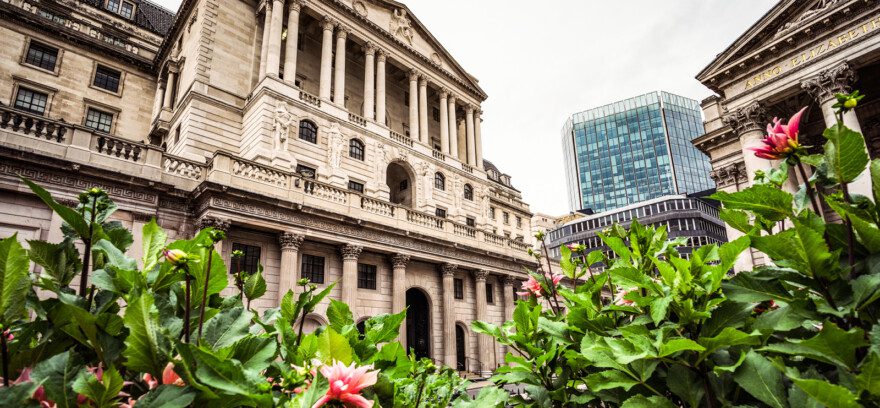UK markets rebounded this week with the FTSE 100 Index rising by 2.85% to trade at 7,450 points at the time of writing. The UK economy contracted by 0.1% in May, less than the 0.3% fall expected by Reuters but economists warned that recent interest rate rises would hit growth in the second half of the year.
Data from the Office for National Statistics showed that the extra bank holiday to mark the King’s Coronation contributed to the fall in UK GDP between April and May. Still, the fall shows that the UK economy is floundering, even before the impact of recent interest rate rises are fully felt. Sterling rose above $1.31 this week to its highest level since April 2022, as investors predict several more interest rate rises form the Bank of England, but just one more from the Federal Reserve. While UK GDP could rebound in June, the significant squeeze on activity from high inflation, stealth tax hikes and rising interest rates pose problems for Prime Minister Rishi Sunak’s pledge to deliver economic growth this year.
The UK economy has been largely flat for the past year as high inflation and rising borrowing costs weigh on household finances and business activity. In May output was only 0.2% above the level in February 2020, at the start of the coronavirus pandemic.
The Prime Minister has accepted in full the recommendations of independent pay review bodies to give public sector workers wage rises of around 6.5%, telling trade unions to call off strikes. The awards were agreed for 2023-24 after the Chancellor, Jeremy Hunt said they could be funded without increased government borrowing that might have fuelled inflation.
Commodity markets
In the commodity markets, Brent crude futures traded around $81 per barrel on Friday, to trade at near two-month highs, as investors digest the latest market oil outlook from the Energy Information Administration and OPEC. The Energy Information Administration cut its forecast for 2023 US crude oil production by 50,000 barrels per day, after OPEC and allies extended output cuts through 2024.
Crude oil production is expected to rise 670,000 barrels per day to 12.56 million barrels per day this year, less than a prior forecast calling for a gain of 720,000. Meanwhile, OPEC maintained a positive outlook on world oil demand, raising its growth forecast for 2023 and predicting a slight slowdown in 2024, driven by strong fuel consumption in China and India.
Despite output cuts, OPEC’s oil production rose by 91,000 barrels per day in June, led by Iran and Iraq. Oil prices were also supported this week after US inflation data implied interest rates in the world’s largest economy are close to their peak.
Gold traded around $1,960 an ounce on Friday, the highest level in a month, as renewed evidence of softer inflation resulted in Treasury yields falling, on expectations the US Federal Reserve could end its rate hiking cycle soon.
Equity markets
US equity futures were relatively unchanged on Friday after a positive week, boosted by the latest inflation statistics. In Thursday’s regular trading session The Dow Jones Industrial Average rose 0.14%, the S&P 500 Index gained 0.85%, while the Nasdaq Composite surged 1.58%.
US inflation fell sharply in June, sending the Dollar lower and highlighting the Federal Reserve’s relative success at bearing down on price pressures. The data stands in sharp contrast to other advanced economies, notably the UK, where the Bank of England is struggling to control inflation at 8.7%.
The major US stock indices closed at 15-month highs, US treasury yields fell, and the dollar index hit its weakest point in 15 months. The annual increase in the consumer price index slowed from 4% in May to 3% in June, the slowest rate of inflation since March 2021, and compared with expectations of 3.1%. However core inflation, which strips out volatile food and energy costs, fell more modestly, from 5.3% to 4.8% in the June data.
Given the Federal Reserve’s core inflation target of 2%, and last week’s strong employment report, another interest rate increase is still likely. Elsewhere, the US earnings season got off to a good start, providing an additional boost to investor sentiment.
The information provided in this communication is not advice or a personal recommendation, and you should not make any investment decisions on the basis of it. If you are unsure of whether an investment is right for you, please seek advice. If you choose to invest, your capital may be at risk and the value of an investment may fall as well as rise in value, so you could get back less than you originally invested.
